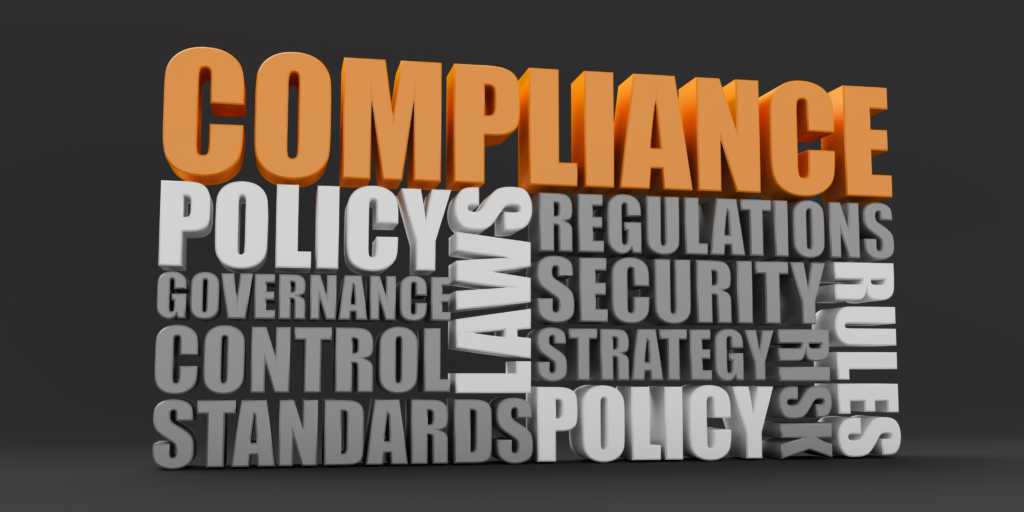Author: Sebastian Bernard Nii Ashaley Cofie – Ghana 🇬🇭

Data protection laws exist to safeguard individuals’ privacy and control over their personal information in the face of increasing digitalization.
In today’s digital age, where vast amounts of personal data are collected, processed, and shared, these laws serve several crucial purposes.
Privacy Protection, Data protection laws aim to preserve individuals’ privacy by regulating the collection, processing, and storage of their personal information. This ensures that individuals have a say in how their data is used.
Trust and Confidence, by establishing rules and standards for handling personal data,these laws contribute to building trust between individuals and organizations. Knowing that their data is protected fosters confidence among users.
Control and Consent, these laws emphasize the importance of obtaining informed consent before collecting or processing personal data. Individuals should have control over what data is collected, for what purpose, and with whom it is shared.
Prevention of Misuse, Data protection laws help prevent the misuse of personal information, such as unauthorized access, identity theft, and fraud. They set guidelines to ensure that data is handled responsibly and ethically.
Data Accuracy and Integrity, Regulations promote the accuracy and integrity of personal data by requiring organizations to update and rectify information when necessary. This ensures that individuals are represented accurately in the digital realm.
Security Measures, Laws prescribe security measures to protect personal data from breaches and unauthorized access. This is particularly crucial given the increasing frequency and sophistication of cyber threats.
Transparency and Accountability, Transparency is a key aspect of data protection laws. Individuals have the right to know how their data is being used, and organizations are held accountable for their data processing practices.
Cross-Border Data Flow Management, in a globalized digital environment, data protection laws help manage the cross-border flow of personal data, ensuring that it adheres to specific standards and safeguards, thereby protecting individuals’ rights regardless of geographical location.
Economic and Innovation Balance, Data protection laws strike a balance between privacy protection and fostering innovation and economic growth. They encourage responsible data practices without stifling technological advancements.
Legal Compliance and Consequences, Organizations must comply with data protection laws to avoid legal consequences. Non-compliance can result in fines, legal actions, and damage to an organization’s reputation.
Data protection laws are essential in establishing a framework that respects individuals’ privacy rights, promotes responsible data practices, and ensures a secure and trustworthy digital environment. They play a crucial role in adapting legal frameworks to the challenges and opportunities presented by the digital age.
Safeguarding personal data in today’s digital landscape is crucial for several reasons:
Privacy Protection, preserving individuals’ right to privacy is fundamental. Safeguarding personal data ensures that individuals have control over how their information is collected, used, and shared.
Trust and Reputation, Organizations that prioritize data protection build trust with their customers. A solid reputation for safeguarding personal data enhances customer confidence and loyalty.
Legal Compliance, adhering to data protection regulations, such as the Data Protection Act, is not only a legal requirement but also mitigates the risk of fines and legal consequences for noncompliance.
Prevention of Data Breaches, safeguarding personal data helps prevent data breaches, which can have severe consequences, including financial loss, damage to reputation, and potential legal action.
Identity Theft Prevention, Personal data, if compromised, can be exploited for identity theft. Protecting this information is essential to prevent unauthorized access and misuse.
Business Continuity, Data breaches and the resulting loss of trust can disrupt business operations. Prioritizing data protection contributes to business continuity by avoiding disruptions caused by security incidents.
Global Connectivity, in an interconnected world, personal data can cross borders. Ensuring its protection is vital for maintaining trust in global transactions and collaborations.
Ethical Responsibility, safeguarding personal data aligns with ethical business practices.
Respecting individuals’ privacy is not just a legal requirement but also a moral obligation.
Cybersecurity Defense and protecting personal data is a key component of broader cybersecurity efforts. A robust data protection strategy contributes to overall cyber resilience.
Innovation and Data Utilization, when individuals trust that their data is handled responsibly, they are more likely to participate in data-driven innovations. This fosters a positive environment for responsible data utilization and technological advancements.
Safeguarding personal data is not only a legal requirement but also an ethical responsibility that enhances trust, protects individuals, and contributes to the overall stability of organizations in our increasingly digital world.
In delving into the fundamental principles of data protection we must consider the following:
Lawfulness, Data processing must have a legal basis, meaning it should comply with the law. Common legal bases include consent, contractual necessity, legal obligations, vital interests, the performance of a task carried out in the public interest, or legitimate interests pursued by the data controller.
Fairness, Data processing should be fair to the individuals whose data is being processed. This involves being transparent about the processing activities and ensuring that individuals are informed about how their data will be used.
Transparency, Organizations must be clear and open about their data processing activities. Individuals should be informed about the purposes of data processing, the types of data collected, and any third parties involved. Transparency builds trust and allows individuals to make informed decisions about their data.
Purpose Limitation, Data should only be collected for specified, explicit, and legitimate purposes. It should not be further processed in a manner incompatible withthose purposes. If organizations want to use the data for a new purpose, they generally need to obtain additional consent.
Data Minimization, Only the minimum amount of data necessary for the intended purpose should be collected and processed. This principle encourages organizations to avoid excessive or irrelevant data collection.
Accuracy, Personal data should be accurate and, where necessary, kept up to date. Organizations are responsible for taking reasonable steps toensure the accuracy of the data they process, and individuals have the right to request corrections.
Storage Limitation, Data should be kept for no longer than is necessary for the purposes for which it is being processed. Organizations should establish and adhere to specific retention periods, and data should be securely deleted when it’s no longer needed.
Integrity, Organizations must implement measures to ensure the security and integrity of personal data. This includes protecting data from unauthorized access, alteration, disclosure, or destruction.
Confidentiality, Personal data should be handled with a duty of confidentiality. This principle ensures that organizations take steps to prevent unauthorized access and disclosure of personal information.
These principles collectively form the foundation for ethical and responsible data processing. Adhering to these principles helps organizations build trust with individuals, ensures legal compliance, and contributes to a more secure and privacy-respecting digital environment.
The rights individuals hold concerning their personal data:
Right to Access, Individuals have the right to obtain confirmation from organizations about whether their personal data is being processed. If so, they can request access to this data, along with information about the purposes of processing, the categories of data involved, and any recipients of the data.
Right to Rectification, Individuals can request the correction of inaccurate or incomplete personal data held by organizations. This ensures that the information used is up-to-date and accurate, maintaining the integrity of their personal data.
Right to Erasure (Right to be Forgotten), Individuals have the right to request the deletion of their personal data under specific circumstances, such as when the data is no longer necessary for the purpose it was collected, the individual withdraws consent, or the data was unlawfully processed.
Right to Object, Individuals can object to the processing of their personal data in certain situations. This includes processing based on legitimate interests or for direct marketing purposes. Organizations must cease processing unless they demonstrate compelling legitimate grounds for the processing that override the individual’s interests, rights, and freedoms.
Right to Restrict Processing, Individuals can request the restriction of processing of their personal data in certain circumstances. This means that while the processing is restricted, organizations can store the data but not use it. This right might be invoked during the assessment of a rectification request or if the individual contests the accuracy of the data.
Right to Data Portability, in some cases, individuals have the right to receive their personal data in a structured, commonly used, and machine-readable format. They can also request the transmission of this data to another data controller.
Rights Related to Automated Decision-Making, Including Profiling, Individuals have safeguards against solely automated decisions, including profiling, that significantly affect them. They can contest such decisions, and there must be mechanisms in place for human intervention.
Right to Lodge a Complaint, Individuals have the right to lodge a complaint with a supervisory authority if they believe that the processing of their data is important.
Practical implementation strategies
We must considerData security measures that’s Encryption, Pseudonymization and Anonymization
In the implementation process, one must utilize encryption to secure data during storage and transmission. Employ pseudonymization (replacing identifying information with pseudonyms and anonymization (irreversibly removing identifiers) to enhance privacy.
This mitigates the risk of unauthorized access and ensures that even if data is compromised it remains unintelligible.
Also, secure storage and transmission of personal data, employ secure protocols such as HTTPS for data transmission. Store personal data in a protected database with access controls. It prevents data breaches during transmission and storage, safeguarding sensitive information from unauthorized access.
By implementing these strategies, organizations can strengthen their data protection measures, comply with regulations and foster a culture of responsible and secure data.










